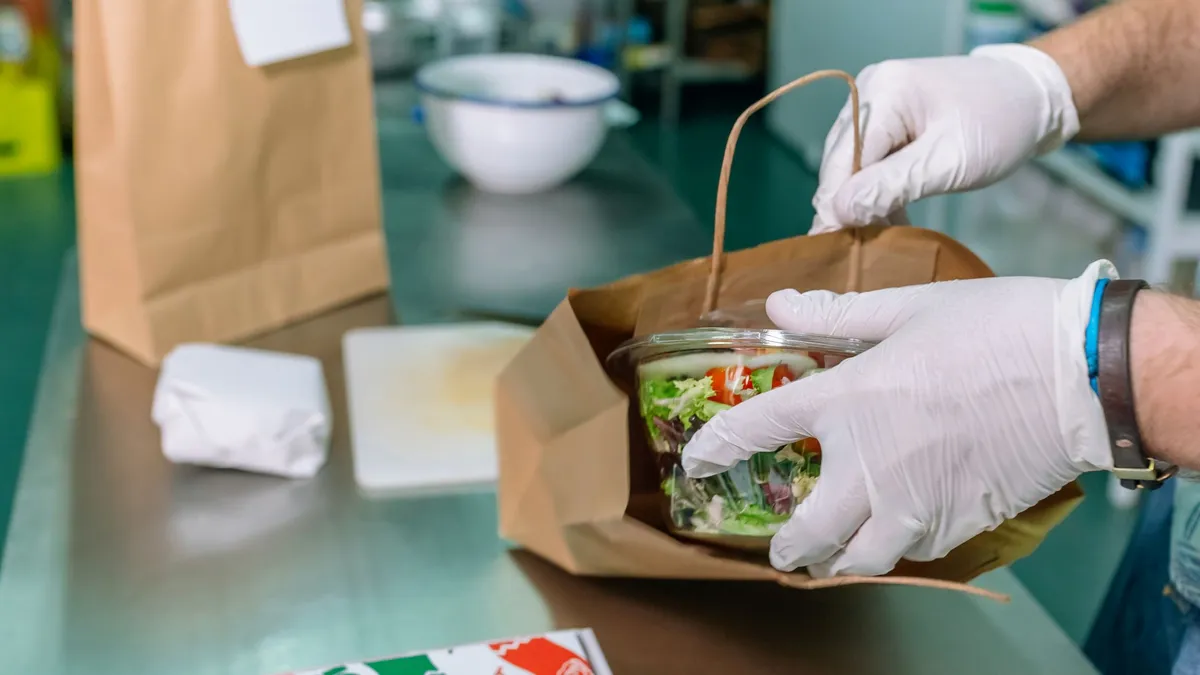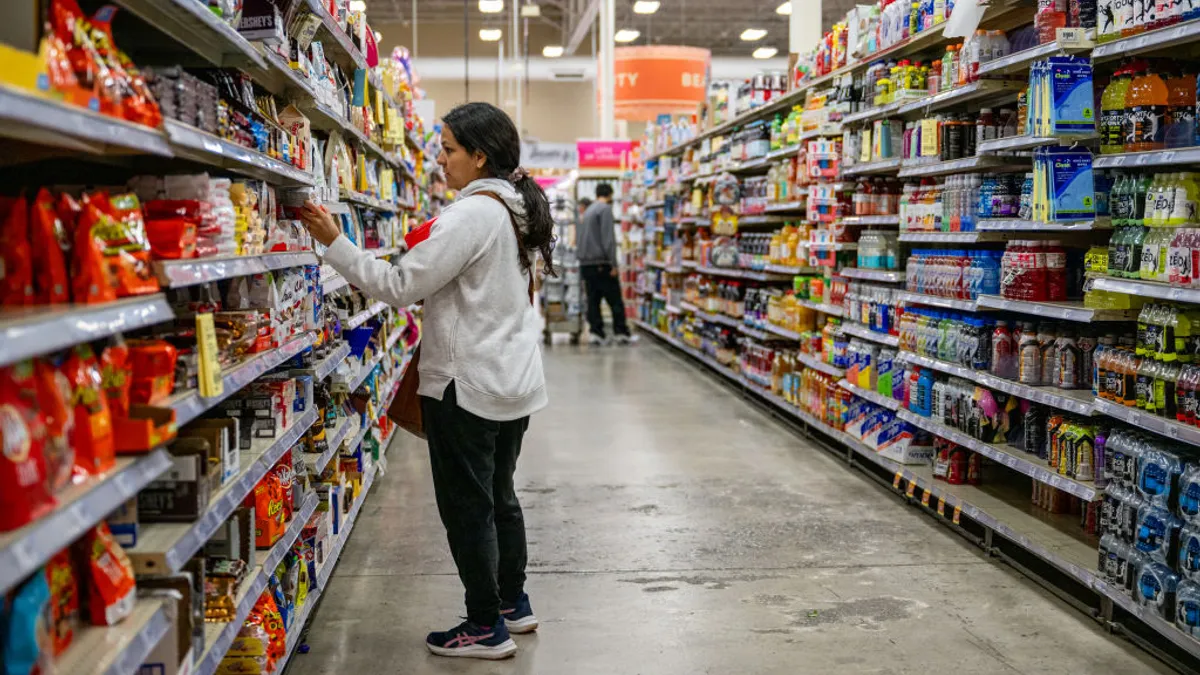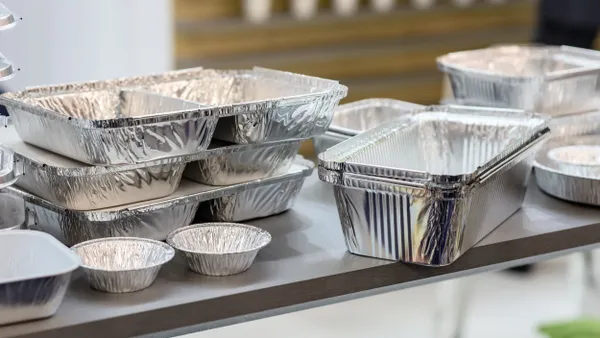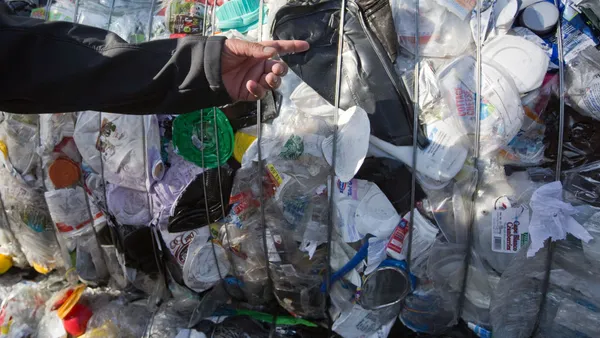Dive Brief:
- The Massachusetts Extended Producer Responsibility Commission has until Jan. 15, 2026, to make initial recommendations to the state legislature, but members decided at their inaugural meeting in Boston this week to advance certain categories sooner.
- The commission, chaired by the state’s Department of Environmental Protection, agreed Monday to focus on policy discussions about paint, mattresses and lithium-ion batteries at its May, June and July meetings. This could lead to legislative recommendations over the summer.
- Packaging and electronics were deemed more complicated categories to address and are scheduled for meetings in September and October. The group intends to form subcommittees on both topics to start discussions beforehand.
Dive Insight:
Massachusetts is viewed as a relative outlier among its Northeast neighbors and other Democrat-led states for not making progress on any EPR bills in recent years. This commission, established as part of a 2024 climate law, is designed to advance the conversation.
MassDEP staff reminded commission participants about the need for solutions, as total 2023 waste volumes increased to nearly 6.2 million tons, putting the state off track for its 2030 waste reduction goals. Meanwhile, disposal capacity is limited and costs are rising. The agency estimated solid waste disposal and recycling costs increased 18% between 2021 and 2024.
The state currently has three EPR laws — focused on pharmaceuticals and certain mercury-containing products — some of which are scheduled to sunset in the coming years.
Scott Cassel, CEO of the Product Stewardship Institute, noted there are now 141 EPR laws covering 20 different product categories across the United States. This includes every category that Massachusetts’ commission is exploring. During a presentation, he described EPR as “the centerpiece of the circular economy” and a way to help advance municipal recycling rates that have “stagnated.”
The 20-member commission is tasked with exploring how such laws could affect costs, waste systems and other factors. Members include representatives from the National Waste & Recycling Association, Casella Waste Systems, MassRecycle, MassPIRG, the Environmental League of Massachusetts, state legislators, various state agencies and other trade groups. As of Monday, two slots intended for environmental justice groups were unfilled and MassDEP said outreach efforts to find these members were ongoing.
MassDEP Commissioner Bonnie Heiple said she’d heard a critique that forming the commission was a delay tactic. She noted this wasn’t the agency’s intention and it was following direction from the legislature.
“It is true that sometimes when people want to make something go away they study it. That's not what we're going to do here,” said John Beling, deputy commissioner for policy and planning at MassDEP, who chairs the commission. Beling said the commission could endorse certain bills or propose language as needed.
Massachusetts legislators have introduced seven EPR bills this year, covering every category under the commission’s purview. Many were reintroduced from prior sessions, where they languished for various reasons.
Waneta Trabert, vice president of MassRecycle and director of sustainable materials management for the city of Newton, recommended the group start with categories such as paint and mattresses that have been discussed for many years and were considered less controversial in the last session. Both have industry support and successful models to follow from other states, though Massachusetts’ mattress disposal ban is a unique factor.
Lithium-ion and rechargeable batteries are also a priority for MassRecycle and NWRA due to the rash of facility fires they say are caused by improper disposal. Trabert said there’s been “a lot of conversation and momentum” about battery EPR this year. Lew Dubuque, vice president of chapter relations at NWRA, called that category “the low-hanging fruit.”
Packaging and electronics are considered more complex, given the wider variety of products and their attendant collection and processing infrastructures. While packaging EPR laws have now passed in five states, with Maryland expected to soon become the sixth, the concept hasn’t gained traction in Massachusetts.
Massachusetts legislators are set to approve environmental bond bill this year. Advocates hope this could be a vehicle for policies related to plastic bags, polystyrene foam and updating the bottle bill; but EPR isn’t likely to be part of it.
The state has a two-year legislative session, which began this year. Critics say this format reduces the urgency to pass bills in a timely fashion. Legislative leaders tend to prefer tackling issues in larger omnibus bills, rather than taking them up on a rolling basis as is more common in other states.
State Rep. Michael Day, who is sponsoring a packaging EPR bill, and state Sen. Michael Barrett, co-chair of the Telecommunications, Utilities and Energy committee, discussed how the commission’s recommendations would align with legislative timing.
“The typical legislative model is to try to be comprehensive ... I guess I have no problem conceptually with our envisioning altogether separate bills dealing with each of these five discrete buckets. But that would be a departure from the norm,” said Barrett.
Others discussed whether different types of EPR laws could be best suited to separate bills or combined approaches, while Cassel referenced the concept of EPR framework legislation that has been used in Maine.
Beling reiterated that he wants to find ways to make progress before January, most likely on paint, mattresses and batteries.
“I defer to the legislature on how they want to write any bills. To me, I think three of these would make sense to get moving on pretty soon,” he said, noting that when it comes to certain categories of EPR “we’re long overdue.”
















